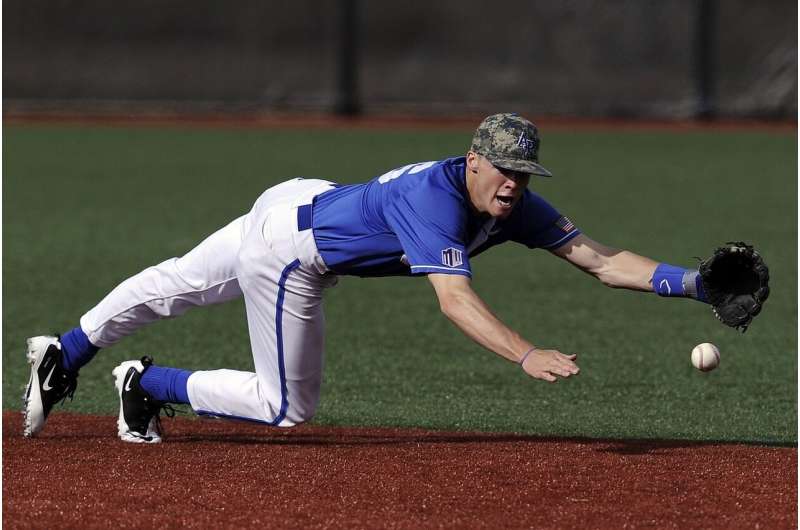Study finds racial disparities in concussion symptom knowledge among college athletes

Among collegiate football players and other athletes, Black athletes recognize fewer concussion-related symptoms than their White counterparts, reports a study in the May/June issue of the Journal of Head Trauma Rehabilitation (JHTR).
"Despite NCAA concussion education requirements for athletes, Black collegiate-athletes were found to have lower concussion symptom knowledge than White collegiate-athletes," according to the new research by Jessica Wallace, Ph.D., MPH, LAT, ATC, of University of Alabama, Tuscaloosa, and colleagues. The study also finds racial differences in the sources of concussion symptom knowledge.
Need for 'equitable strategies' to communicate concussion information
In the study, 768 collegiate athletes—about 83 percent White and 17 percent Black—completed a standard assessment of concussion symptom knowledge. Participants included 196 football players, of whom 59 percent were White and 41 percent were Black.
Scores on the concussion symptom knowledge questionnaire were compared for Black and White athletes, with adjustment for other characteristics. The athletes were also asked about their sources of information about concussion symptoms.
"Black athletes were more likely to have lower concussion symptom knowledge scores than White athletes," according to the authors. The difference was small: average scores on the 34-point questionnaire were 27.7 for White athletes and 25.9 for Black athletes. However, the between-group difference remained statistically significant after adjustment for other factors. The findings were similar for football players compared to all athletes.
Concussion symptom knowledge varied for a range of sleep, mood, physical, and cognitive symptoms of concussion. In particular, Black athletes were less likely to correctly recognize the symptoms of feeling like "in a fog," nausea or vomiting, and feeling more irritable/angry.
Most athletes identified athletic trainers as a main source of concussion information. White athletes were somewhat more likely to mention other school-based professionals (such as teachers or nurses), online medical sources, or the National Collegiate Athletic Association (NCAA). Black athletes were more likely to cite referees as a source of concussion information.
Basic knowledge of concussion symptoms is fundamental to prompt recognition and reporting of concussions. Studies have suggested that 50 to 80 percent of concussions may go unreported.
In previous studies, Dr. Wallace and colleagues reported racial disparities in concussion knowledge among high school and youth athletes. Concussion knowledge was lowest for athletes attending schools of lower socioeconomic status and without access to athletic trainers.
These differences in concussion knowledge may extend to the college level, the new study suggests. The disparity may be related to historic and systemic bias/discrimination and inequitable access to healthcare and other resources, or to racial distrust in medical resources and healthcare overall. "All of these contributing factors of inequity and disparity at the community level, youth sports level, and high school sports level could impact exposure and/or receptiveness to concussion education materials that may ultimately explain the lower concussion symptom knowledge of Black collegiate-athletes," Dr. Wallace and coauthors write.
The researchers emphasize the need for strategies to ensure equitable access to concussion education and prevention that do not perpetuate disparity: "Moving forward, a conscious attempt is needed to redevelop concussion education initiatives as racially, culturally, and linguistically inclusive, addressing the needs of all collegiate athletes equally and equitably."
The NCAA provides educational resources on concussion: https://www.ncaa.org/sport-science-institute/concussion-educational-resources.
More information: Jessica Wallace et al. Assessing Differences in Concussion Symptom Knowledge and Sources of Information Among Black and White Collegiate-Athletes, Journal of Head Trauma Rehabilitation (2021). DOI: 10.1097/HTR.0000000000000672


















